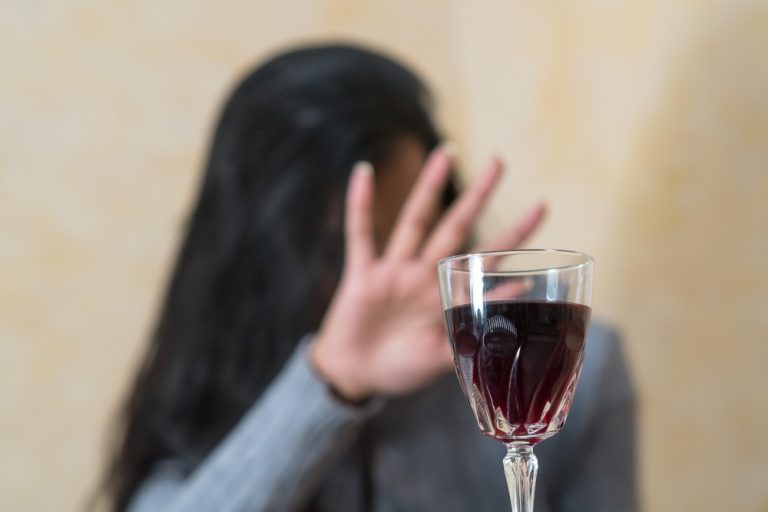The most commonly used illegal drugs are marijuana , stimulants , LSD, PCP, opiates or opioid pain killers, heroin, and designer drugs . The use of illegal drugs is increasing, especially among young teens. The average age of first marijuana use is 14, and alcohol use can start before age 12. The use of marijuana and alcohol in high school has become common. Clark DB, Kirisci L, Tarter RE. Adolescent versus adult onset and the development of substance use disorders in males.
MedlinePlus links to health information from the National Institutes of Health and other federal government agencies. MedlinePlus also links to health information from non-government Web sites. See our disclaimer about external links and our quality guidelines.
Instead of slowing them down, alcohol can make teens feel more energetic, do riskier things and get moreaggressive. Drinking is even more dangerous for kids withADHD because they’re already impulsive. Substance use can also make depressed teenagers more prone to impulsivesuicidal behavior. If they’re not treated, almost half of kids with mental health disorders will end up having a substance use disorder. In addition to personal adversities, the abuse of alcohol and other drugs by youth may result in family crises and jeopardize many aspects of family life, sometimes resulting in family dysfunction.
The body will feel this and cause a user to seek out drugs once again. This is part of the addiction cycle, and this is why addiction is considered a brain disease. Users often cannot stop using drugs, even when they want to, because of the consequences that the brain and body experiences. Legally available drugs include alcohol, prescribed medications, inhalants and over-the-counter cough, cold, sleep, and diet medications.
If you’re concerned about substance abuse in the life of a teen you know, contact a treatment providerfor help and support. In the adolescent brain, pathways between regions are still developing. This “plasticity” means the brain easily habituates to drugs and alcohol. “If you start drinking at 30, you don’t get addicted nearly as fast as if you start drinking at 15,” adds Ms. Friedman. Drinking or smoking marijuana can help make hopelessness,anxiety, irritability andnegative thoughts disappear quickly. This is especially true if they have mental health disorders.
Mental Health Disorders and Teen Substance Use
Additionally, there are consequences for family members, the community, and the entire society. Learn about risk factors, prevention, and how to end the cycle of drug abuse in teens. Drugs are chemicals that tap into the brain’s communication system. Certain drugs can activate nerve cells improperly, damage brain connections, and send abnormal messages throughout our brain circuits. When drug use is introduced and repeated, the brain will send messages to the rest of the body saying that it needs the drugs to function.
- The most effective teen drug rehab, however, may be a residential treatment program.
- Matt started using drugs simply because he began hanging out with other kids who did.
- And when your body needs rest, your brain should help you feel tired and ready to go to sleep.
- Substance Use for Teens Explore individualized treatment programs that help teens with drug abuse, mental health, and co-occurring conditions.
- I stayed because the solutions they gave me will serve me the rest of my life.
- We contend that brain development science provides a valuable framework for optimizing the effectiveness of prevention and treatment programs and practices.
Withdraw from drugs might also be related to thoughts of suicide. Dependence on drugs interferes with the brain’s biological processes and can increase thoughts of hopelessness. Matt begins to engage in these behaviors with his new friends, and he finds that his grades begin to drop.
Injuries due to accidents , physical disabilities and diseases, and the effects of possible overdoses are among the health-related consequences of teenage substance abuse. Disproportionate numbers of youth involved with alcohol and other drugs face an increased risk of death through suicide, homicide, accident, and illness. Data demonstrated that 50% of teenagers reported misusing a drug at least once in their lifetime. Moreover, “86% of teenagers know someone who smokes, drinks, or uses drugs during the school day.”2Teen drug abuse is an incredibly frightening public health issue that we must address.
Implications for Understanding Adolescent Behavior
They may be more likely to do risky things, such as unsafe sex and dangerous driving. The fastest-growing drug problem in the United States isn’t cocaine, heroin, or methamphetamines. It is prescription drugs, and it is profoundly affecting the lives of teenagers. Drug use can complicate or increase the risk of nutritional therapy for alcohol use disorder mental health disorders, such as depression and anxiety. Studies have also shown that the teen brain responds differently to alcohol than the adult brain does. People who begin drinking during adolescence, especially those who drink a lot, are more likely to develop an alcohol dependency than those who don’t.
When something releases a high amount of pleasure – such as drug use – the brain considers that a very important activity. The brain remembers it and strengthens it, pruning back on other areas, instead. But because teenagers’ reward circuits are still being developed, their ability to bounce back to normal after using drugs is lessened, due to how drugs affect their brain.

Data published by the National Center for Drug Abuse Statistics reports that at least one in every eight teenagers abused an illicit substance within the past year. From 2016 to 2020, substance use among eighth-graders increased 61%. When a teenager uses drugs, the drugs get absorbed into the bloodstream and carried to various organs, including the brain. When drugs enter the brain, they interfere with its normal processing, including the development of cells and the function of the brain’s neurotransmitters, such as dopamine. Often teenagers use other family members’ or friends’ medications to get high.
Your Career
The safest course for an adolescent is to refrain from all drug use while the brain is developing. Of course, it is crucial for adolescents with a substance use disorder to reduce or abstain from use. The emerging science of neuro-development is providing a new framework for viewing adolescent risk-taking, including decisions by young people to use alcohol consumption and blood pressure alcohol and other drugs. This new research, aided by sophisticated brain imaging technology, has documented the surprising finding that the human brain is still maturing in significant ways during the adolescent years . The way the brain develops during adolescence may help explain why youth sometimes make decisions that seem to be quite risky.
When someone uses depressants, their energy level decreases, their breathing and heart rate slow down and their body temperature lowers. One aspect of a healthy brain’s complexity is its delicate balance of chemicals that keep the body and mind functioning normally. These chemicals are called neurotransmitters, and they carry messages between nerve cells and neurons, or nerve endings. Search by your age, location, treatment program and level of care to find the solution that best fits your needs.
If drug use continues, they’ll face a higher risk of encountering challenges in school, like difficulties with paying attention, struggles with grades and social problems. These issues could lead to lower test scores and the need to repeat classes. If these reward pathways of the brain continue to be altered due to repeated drug use, effects on a young person’s wellbeing can be overwhelming and long-lasting. Teenagers who use hallucinogens can have delusional thoughts, and they see, hear, feel and taste things that aren’t really there. These cells are protected by a substance called myelin, which acts as a sort of insulator to the messages that come to your brain.

Some studies of the human brain have attempted to pinpoint the changes that occur during adolescence. These side effects cause difficulties making friends or feeling accepted at school. If you are a parent who notices changes in your teen’s behavior or has seen signs of drug use, it is crucial to understand the risk factors. This blog post will explore how drug abuse impacts academics and how parents can prevent teens from using drugs and alcohol. Because the parts of the brain dedicated to judgement, rational decision-making, and self-control are not yet fully developed, teenagers have a higher propensity to experiment with drugs and alcohol. And because of their stage of brain development, they do not always understand the potential risks.
Yet during highly emotionally situations, the teenager may be particularly prone to taking risks (Cohen et al., 2010). Adolescents, more so than adults, are more likely to be highly persuaded by the influences of peers . Also, because teenagers vary in their ability to control impulses control, these differences among youth in impulse regulation contribute pharmacologic management of alcohol dependence to variability in risk taking (Iacono, Malone, & McGue, 2008). While teens are constantly preparing to meet the challenges of an adult world, and taking some risks during this time is natural. Still, making too many risky decisions in the teen years while the may throw off the course of healthy brain development in ways that add an undue burden.
Why is CDC addressing youth high-risk substance use?
This can lead to increased impulsivity and poor decision making skills. Research shows that adults who began smoking marijuana during their adolescent years lost an average of 8 IQ points between the ages of 13 and 38 years old. Peers have a very strong influence on adolescents, including decisions to initiate and continue drug use, or try different types of drugs. Adolescents are likely to seek out risky behaviors, especially in the presence of their peers, despite knowing that their parents would disapprove of such behaviors . Parents can get to know their adolescent’s peer group and the parents of their natural peer group to try and set common rules such as curfews, disapproval of underage drinking, and unsupervised parties. We know from experience that adolescents are capable of expressing and showing sound judgment, and their appraisal of risk is generally comparable to that of adults .
Given the teen brain’s unique vulnerability to substance use and addiction, it is extremely important that teens learn about the immediate, short-term, and long-term consequences of any substance use. Some young people suffer from depression, anxiety, stress-related disorders, and physical pain. While for some young people drug use might be a phase, for some teens it turns into something more problematic. Drug use at a young age can lead to slowed development and cognitive impairment. It can impact a teen’s performance at school or could worsen feelings of depression. Drug use also leads to lowered inhibitions, which can lead to poor choices.
If you or a loved one are struggling with mental health or substance abuse, we can help. Often, addicted teenagers will increase their drug dosages without thinking twice, and later overdose by taking too much. It is during this time that the brain conditions itself for future experiences. It prunes back the brain cells that get used the least, and strengthens the cells and connections that are most engaged.
Why Do Teens Use Drugs?
Substance use escalates from experimentation to a serious disorder much faster in adolescents than it does in adults, and that progression is more likely to happen in kids with mental health disorders than in other kids. It is highly common for teenagers to experiment with alcohol and drug use during adolescence, for some as a means to self-medicate and for others merely out of curiosity. Regardless, teenagers that habitually abuse drugs and/ or alcohol place themselves at increased risk for developing severe short- and long-term physiological effects.
What makes Casa Palmera distinct from other treatment facilities is our desire to not only heal the body, but also aiming to heal the mind and spirit. Even occasional drug use during the teenage years can cause severe effects, in that it can put a teen at an increased risk for a substance use disorder (i.e. clinical addiction). Introducing drug use just a few times in adolescence can put a teenager on the path to using them again in the future, assuming their brain remembers the pleasure from it. Some of the warning signs listed above can also be signs of other problems. Parents may recognize signs of trouble and possible use of alcohol and other drugs with their teenager.




















